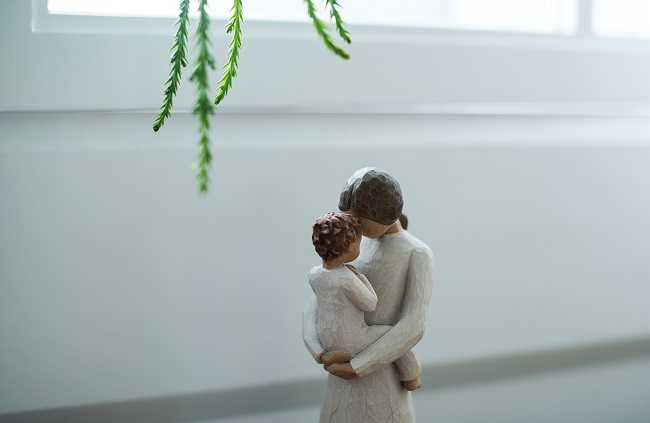 Why is forgiveness so hard? We all know that we should forgive and forgive easily. Yet very few of us know how to do that.
Why is forgiveness so hard? We all know that we should forgive and forgive easily. Yet very few of us know how to do that.
The challenge is that forgiveness does not come naturally to us. Our base instincts tell us not to forgive others. Why? Because holding a grudge is a form of self-preservation. If I don’t forgive you, I keep you forever at a distance. Then you can’t hurt me a second time.
Holding a grudge also serves our basic desire for retaliation. When I don’t forgive you, I get back at you by making you suffer in some way for hurting me. Perhaps I stop speaking to you. Or maybe I speak badly about you to others.
We feel good when we retaliate because we feel like we have regained our power over the other person. When you hurt me, that makes me feel powerless. By retaliating I get back my power. If I freely and immediately forgive you, then I have not served my need to retaliate against you.
However, our base instincts for self-preservation and retaliation ultimately don’t serve us well. There is no question that learning how to forgive freely and easily is the better approach to human relationships. Forgiving others eliminates conflict because we don’t retaliate against others when they’ve hurt us. And we are happier when we aren’t burdened by carrying around grudges.
The problem is that forgiving others doesn’t come naturally to us. It is a skill that has to be learned, like any other. Below are some ways to learn to forgive others. Consider adopting these approaches as you learn the art of forgiving.
Pray for Those Who Have Hurt You: The best way to develop a forgiving heart is to pray for the people who have hurt you. I have a list of people who I pray for each day, and some of them are people who have hurt me or rejected me. But I pray for them anyway because I want to train myself to have a peaceful attitude toward them.
Significantly, in the Gospel of Matthew, Jesus says,
“You have heard that it was said, ‘Love your neighbor and hate your enemy.’ But I tell you, love your enemies and pray for those who persecute you, that you may be children of your Father in heaven.” – Matthew 5:43-45 (NIV)
Praying for those who persecute you seems counterintuitive, doesn’t it? On its face, Jesus’ advice appears to make no sense. Why should we pray for those who hurt us?
However, Jesus knew that we should pray for those who hurt us because that starts us on the path of forgiving them. When we think positive thoughts toward those who have hurt us, our hearts soften. We feel less angry. And, in turn, we are more open to forgiving them.
Praying for those who have hurt us actually helps us. We feel lighter and happier about life when we aren’t walking around feeling angry. And that is a good thing!
Remember That We Are All Fallible: We all have been hurt by others. But we also all have hurt others. That is just part of being human. No matter how careful we are with the feelings of others, on occasion, we will make mistakes and hurt other people.
Most of us don’t hurt others intentionally. We may behave in an inconsiderate manner because we are busy. Or, we may make an unkind remark because we failed to think before we speak. We each would want others to forgive us if we unintentionally hurt them. So, shouldn’t we likewise forgive others when they unintentionally hurt us?
The reality is that none of us behaves perfectly all the time. Of course, we would like to be perfectly kind and gracious all the time, but that isn’t possible. When we recognize and accept our own imperfections, it is easier to forgive the imperfections of others.
Consider the Whole Person: Forgiving another person is easier if you put the offending act in context. For example, my husband is very considerate of my needs and feelings most of the time. So, if on occasion he acts in an inconsiderate manner, I try to remember that such incidents are few and far between. And that makes it easier for me to forgive him for a momentary lapse.
Most of our good relationships are like that. If someone is kind and generous most of the time, then we can let a harsh comment or a moment of rudeness go. And we should. No one is perfect.
Admittedly, some people are harder to forgive than others. I’ve known people who are more often mean than kind. There are just some people in this world who choose to be a problem. You can’t do much about them, other than avoid them.
But we should even forgive the problematic people. Why? Because we should feel sorry for them. Yes, their behavior is a nuisance to us. But can you imagine what it is like to be them? To go through life being difficult and negative? I wouldn’t want their lives in a million years.
If you struggle with forgiving others, know that you are not alone. The ability to forgive is one of the most difficult skills to develop. But once you become someone who can forgive easily, you will be so much happier. The behavior of others won’t affect your happiness. Instead, with a forgiving heart, you will always be happy no matter what others say or do.
(Photo Courtesy of Pexels)
Email: yourmorningcupofinspiration@gmail.com
Books: “The Secrets to Success for the Working Mother” by Meerabelle Dey (https://www.amazon.com/Secrets-Success-Working-Mother/dp/1546329544 )

